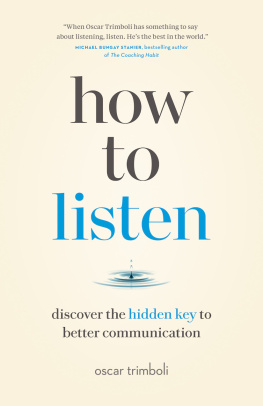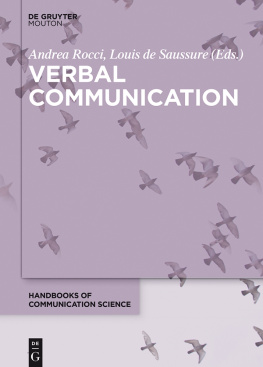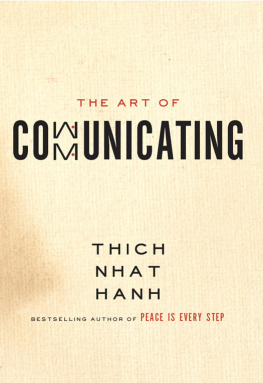
 motique media Publishing division of Motique Momentums, LLC www.danielaGabrielle.com Copyright 2014 Valerie J. Payton www.theliteracystudio.com All rights reserved. ISBN: ISBN-13: ii
motique media Publishing division of Motique Momentums, LLC www.danielaGabrielle.com Copyright 2014 Valerie J. Payton www.theliteracystudio.com All rights reserved. ISBN: ISBN-13: ii  This book is dedicated toYOU... iv
This book is dedicated toYOU... iv 


 ________________________________________________ EIGHT KEYS TO BECOMING THE MASTER OF Your COMMUNICATION Common and Proper Nouns Singular and Plural Nouns Various Rules for Forming the Plural Possessive Nouns Singular Possessive Nouns Plural Possessive Nouns Plural Noun or Possessive Noun Showing Possession with the Days of the Week and the Months of the Year Action Verbs State-of-Being Verbs Using Helping Verbs Main Verbs Verb Tenses Forming the Present Tense of Verbs Forming the Past Tense of Verbs Irregular Verbs in the Past Tense Forming the Future Tense of Verbs Staying in the Same Verb Tense Principal Parts of Irregular Verbs Confusing Verbs Verbs Confused with Words That Are Not Verbs
________________________________________________ EIGHT KEYS TO BECOMING THE MASTER OF Your COMMUNICATION Common and Proper Nouns Singular and Plural Nouns Various Rules for Forming the Plural Possessive Nouns Singular Possessive Nouns Plural Possessive Nouns Plural Noun or Possessive Noun Showing Possession with the Days of the Week and the Months of the Year Action Verbs State-of-Being Verbs Using Helping Verbs Main Verbs Verb Tenses Forming the Present Tense of Verbs Forming the Past Tense of Verbs Irregular Verbs in the Past Tense Forming the Future Tense of Verbs Staying in the Same Verb Tense Principal Parts of Irregular Verbs Confusing Verbs Verbs Confused with Words That Are Not Verbs 
 Replacing Nouns and Antecedents with Pronouns Singular Pronouns Plural Pronouns Using Pronouns and Antecedents in Special Ways Subject Pronouns Subject Pronouns Before Action Verbs Subject Pronouns After State-of-Being Verbs Subject Pronouns Followed by a Noun Object Pronouns Object Pronouns After Action Verbs Object Pronouns After Prepositions Compound Object Pronouns After Prepositions Pronouns After Than and As Using Reflexive Pronouns Ending with self or selves Using the Relative Pronouns Who and Whom Using Whoever and Whomever Possessive Pronouns Possessive Pronouns Before Nouns Possessive Pronouns That Stand Alone Using Possessive Pronouns in a Special Way Possessive Pronouns and Contractions Indefinite Pronouns Singular Indefinite Pronouns Plural Indefinite Pronouns Singular Subjects Plural Subjects The Pronouns You and I As Subjects Singular Subjects Ending in s Plural Subjects Not Ending in s or es Subject and Verb Agreement with Special Verbs Using Is, Are, Was, and Were with Subjects Using the Pronoun I with Am and Was Using Has and Have with Subjects Using Does and Do with Subjects Using the Verb Were in the Subjunctive Mood Subject and Verb Agreement with the Compound Subject Using the Conjunction And in a Compound Subject Using Compound Subjects with Or, Either-or, and Neither-nor Subject and Verb Agreement with Here, There, and Where Using Here, There, and Where as Contractions vi
Replacing Nouns and Antecedents with Pronouns Singular Pronouns Plural Pronouns Using Pronouns and Antecedents in Special Ways Subject Pronouns Subject Pronouns Before Action Verbs Subject Pronouns After State-of-Being Verbs Subject Pronouns Followed by a Noun Object Pronouns Object Pronouns After Action Verbs Object Pronouns After Prepositions Compound Object Pronouns After Prepositions Pronouns After Than and As Using Reflexive Pronouns Ending with self or selves Using the Relative Pronouns Who and Whom Using Whoever and Whomever Possessive Pronouns Possessive Pronouns Before Nouns Possessive Pronouns That Stand Alone Using Possessive Pronouns in a Special Way Possessive Pronouns and Contractions Indefinite Pronouns Singular Indefinite Pronouns Plural Indefinite Pronouns Singular Subjects Plural Subjects The Pronouns You and I As Subjects Singular Subjects Ending in s Plural Subjects Not Ending in s or es Subject and Verb Agreement with Special Verbs Using Is, Are, Was, and Were with Subjects Using the Pronoun I with Am and Was Using Has and Have with Subjects Using Does and Do with Subjects Using the Verb Were in the Subjunctive Mood Subject and Verb Agreement with the Compound Subject Using the Conjunction And in a Compound Subject Using Compound Subjects with Or, Either-or, and Neither-nor Subject and Verb Agreement with Here, There, and Where Using Here, There, and Where as Contractions vi 


 DONT Say THAT List of Commonly Used Prepositions Prepositional Phrases Object Pronouns after Prepositions Subject/Verb Agreement and the Object of the Preposition Using the Prepositions Between and Among Prepositions at the End of Sentences Adjectives Tell What Kind, Which One, and How Many Adjectives before Nouns Adjectives after Nouns and Pronouns Demonstrative Adjectives This, That, These, and Those Adjective or Pronoun? Special Adjectives Proper Nouns as Proper Adjectives Articles A, An, and The Making Comparisons with Adjectives Comparative Form Superlative Form Using More and Most Comparative Form with More Superlative Form with Most Irregular Comparative and Superlative Forms of Adjectives Adverbs Modifying Verbs Adverbs Modifying Adjectives Adverbs Modifying Adverbs What Do Adverbs Tell about Words They Modify? Adverbs Not Ending in ly Using Adverbs and Adjectives Making Comparisons with Adverbs Comparative Form Superlative Form Using Good and Well, Bad and Badly Adjectives Good and Bad Adverbs Well and Badly Using Good or Well Common Negative Words Contractions with the Negative Word Not Common Positive Words Avoiding Double Negatives vii
DONT Say THAT List of Commonly Used Prepositions Prepositional Phrases Object Pronouns after Prepositions Subject/Verb Agreement and the Object of the Preposition Using the Prepositions Between and Among Prepositions at the End of Sentences Adjectives Tell What Kind, Which One, and How Many Adjectives before Nouns Adjectives after Nouns and Pronouns Demonstrative Adjectives This, That, These, and Those Adjective or Pronoun? Special Adjectives Proper Nouns as Proper Adjectives Articles A, An, and The Making Comparisons with Adjectives Comparative Form Superlative Form Using More and Most Comparative Form with More Superlative Form with Most Irregular Comparative and Superlative Forms of Adjectives Adverbs Modifying Verbs Adverbs Modifying Adjectives Adverbs Modifying Adverbs What Do Adverbs Tell about Words They Modify? Adverbs Not Ending in ly Using Adverbs and Adjectives Making Comparisons with Adverbs Comparative Form Superlative Form Using Good and Well, Bad and Badly Adjectives Good and Bad Adverbs Well and Badly Using Good or Well Common Negative Words Contractions with the Negative Word Not Common Positive Words Avoiding Double Negatives vii 




 DONT Say THAT With special thanks: To all of the wonderful students I taught at P.S. 133M/The Fred R. Moore School in Harlem. years filled with love, appreciation, good times (and some challenges), and those amazing memories that are forever etched in my heart. years filled with love, appreciation, good times (and some challenges), and those amazing memories that are forever etched in my heart.
DONT Say THAT With special thanks: To all of the wonderful students I taught at P.S. 133M/The Fred R. Moore School in Harlem. years filled with love, appreciation, good times (and some challenges), and those amazing memories that are forever etched in my heart. years filled with love, appreciation, good times (and some challenges), and those amazing memories that are forever etched in my heart.
To the parents, for trusting me to teach your children, and for allowing me to care for them as if they were my own. Your support made it all possible. To the most phenomenal principal, Mr. Edward Jackson. You saw something in me and made me know that I was born to teach. I told you I was writing a book, but I am so sorry I did not get a chance to share it with you.
I can hear you saying, Good job Valerie. To my mother, Nanine Payton. At a very young age, while spending summers with you in New York, you sparked my interest in the English Language and speaking correctly. I remember asking, Where is the Empire State Building at? Your response was, Its behind the preposition at. When I said, There goes the Empire State Building, you asked, Where is it going? To my awesome children, Tasean and Shakeerah, for having to come home to a teacher after being in school all day. You endured the corrections, and most of the time you welcomed them with love.
Next page









 motique media Publishing division of Motique Momentums, LLC www.danielaGabrielle.com Copyright 2014 Valerie J. Payton www.theliteracystudio.com All rights reserved. ISBN: ISBN-13: ii
motique media Publishing division of Motique Momentums, LLC www.danielaGabrielle.com Copyright 2014 Valerie J. Payton www.theliteracystudio.com All rights reserved. ISBN: ISBN-13: ii  This book is dedicated toYOU... iv
This book is dedicated toYOU... iv 


 ________________________________________________ EIGHT KEYS TO BECOMING THE MASTER OF Your COMMUNICATION Common and Proper Nouns Singular and Plural Nouns Various Rules for Forming the Plural Possessive Nouns Singular Possessive Nouns Plural Possessive Nouns Plural Noun or Possessive Noun Showing Possession with the Days of the Week and the Months of the Year Action Verbs State-of-Being Verbs Using Helping Verbs Main Verbs Verb Tenses Forming the Present Tense of Verbs Forming the Past Tense of Verbs Irregular Verbs in the Past Tense Forming the Future Tense of Verbs Staying in the Same Verb Tense Principal Parts of Irregular Verbs Confusing Verbs Verbs Confused with Words That Are Not Verbs
________________________________________________ EIGHT KEYS TO BECOMING THE MASTER OF Your COMMUNICATION Common and Proper Nouns Singular and Plural Nouns Various Rules for Forming the Plural Possessive Nouns Singular Possessive Nouns Plural Possessive Nouns Plural Noun or Possessive Noun Showing Possession with the Days of the Week and the Months of the Year Action Verbs State-of-Being Verbs Using Helping Verbs Main Verbs Verb Tenses Forming the Present Tense of Verbs Forming the Past Tense of Verbs Irregular Verbs in the Past Tense Forming the Future Tense of Verbs Staying in the Same Verb Tense Principal Parts of Irregular Verbs Confusing Verbs Verbs Confused with Words That Are Not Verbs 
 Replacing Nouns and Antecedents with Pronouns Singular Pronouns Plural Pronouns Using Pronouns and Antecedents in Special Ways Subject Pronouns Subject Pronouns Before Action Verbs Subject Pronouns After State-of-Being Verbs Subject Pronouns Followed by a Noun Object Pronouns Object Pronouns After Action Verbs Object Pronouns After Prepositions Compound Object Pronouns After Prepositions Pronouns After Than and As Using Reflexive Pronouns Ending with self or selves Using the Relative Pronouns Who and Whom Using Whoever and Whomever Possessive Pronouns Possessive Pronouns Before Nouns Possessive Pronouns That Stand Alone Using Possessive Pronouns in a Special Way Possessive Pronouns and Contractions Indefinite Pronouns Singular Indefinite Pronouns Plural Indefinite Pronouns Singular Subjects Plural Subjects The Pronouns You and I As Subjects Singular Subjects Ending in s Plural Subjects Not Ending in s or es Subject and Verb Agreement with Special Verbs Using Is, Are, Was, and Were with Subjects Using the Pronoun I with Am and Was Using Has and Have with Subjects Using Does and Do with Subjects Using the Verb Were in the Subjunctive Mood Subject and Verb Agreement with the Compound Subject Using the Conjunction And in a Compound Subject Using Compound Subjects with Or, Either-or, and Neither-nor Subject and Verb Agreement with Here, There, and Where Using Here, There, and Where as Contractions vi
Replacing Nouns and Antecedents with Pronouns Singular Pronouns Plural Pronouns Using Pronouns and Antecedents in Special Ways Subject Pronouns Subject Pronouns Before Action Verbs Subject Pronouns After State-of-Being Verbs Subject Pronouns Followed by a Noun Object Pronouns Object Pronouns After Action Verbs Object Pronouns After Prepositions Compound Object Pronouns After Prepositions Pronouns After Than and As Using Reflexive Pronouns Ending with self or selves Using the Relative Pronouns Who and Whom Using Whoever and Whomever Possessive Pronouns Possessive Pronouns Before Nouns Possessive Pronouns That Stand Alone Using Possessive Pronouns in a Special Way Possessive Pronouns and Contractions Indefinite Pronouns Singular Indefinite Pronouns Plural Indefinite Pronouns Singular Subjects Plural Subjects The Pronouns You and I As Subjects Singular Subjects Ending in s Plural Subjects Not Ending in s or es Subject and Verb Agreement with Special Verbs Using Is, Are, Was, and Were with Subjects Using the Pronoun I with Am and Was Using Has and Have with Subjects Using Does and Do with Subjects Using the Verb Were in the Subjunctive Mood Subject and Verb Agreement with the Compound Subject Using the Conjunction And in a Compound Subject Using Compound Subjects with Or, Either-or, and Neither-nor Subject and Verb Agreement with Here, There, and Where Using Here, There, and Where as Contractions vi 


 DONT Say THAT List of Commonly Used Prepositions Prepositional Phrases Object Pronouns after Prepositions Subject/Verb Agreement and the Object of the Preposition Using the Prepositions Between and Among Prepositions at the End of Sentences Adjectives Tell What Kind, Which One, and How Many Adjectives before Nouns Adjectives after Nouns and Pronouns Demonstrative Adjectives This, That, These, and Those Adjective or Pronoun? Special Adjectives Proper Nouns as Proper Adjectives Articles A, An, and The Making Comparisons with Adjectives Comparative Form Superlative Form Using More and Most Comparative Form with More Superlative Form with Most Irregular Comparative and Superlative Forms of Adjectives Adverbs Modifying Verbs Adverbs Modifying Adjectives Adverbs Modifying Adverbs What Do Adverbs Tell about Words They Modify? Adverbs Not Ending in ly Using Adverbs and Adjectives Making Comparisons with Adverbs Comparative Form Superlative Form Using Good and Well, Bad and Badly Adjectives Good and Bad Adverbs Well and Badly Using Good or Well Common Negative Words Contractions with the Negative Word Not Common Positive Words Avoiding Double Negatives vii
DONT Say THAT List of Commonly Used Prepositions Prepositional Phrases Object Pronouns after Prepositions Subject/Verb Agreement and the Object of the Preposition Using the Prepositions Between and Among Prepositions at the End of Sentences Adjectives Tell What Kind, Which One, and How Many Adjectives before Nouns Adjectives after Nouns and Pronouns Demonstrative Adjectives This, That, These, and Those Adjective or Pronoun? Special Adjectives Proper Nouns as Proper Adjectives Articles A, An, and The Making Comparisons with Adjectives Comparative Form Superlative Form Using More and Most Comparative Form with More Superlative Form with Most Irregular Comparative and Superlative Forms of Adjectives Adverbs Modifying Verbs Adverbs Modifying Adjectives Adverbs Modifying Adverbs What Do Adverbs Tell about Words They Modify? Adverbs Not Ending in ly Using Adverbs and Adjectives Making Comparisons with Adverbs Comparative Form Superlative Form Using Good and Well, Bad and Badly Adjectives Good and Bad Adverbs Well and Badly Using Good or Well Common Negative Words Contractions with the Negative Word Not Common Positive Words Avoiding Double Negatives vii 




 DONT Say THAT With special thanks: To all of the wonderful students I taught at P.S. 133M/The Fred R. Moore School in Harlem. years filled with love, appreciation, good times (and some challenges), and those amazing memories that are forever etched in my heart. years filled with love, appreciation, good times (and some challenges), and those amazing memories that are forever etched in my heart.
DONT Say THAT With special thanks: To all of the wonderful students I taught at P.S. 133M/The Fred R. Moore School in Harlem. years filled with love, appreciation, good times (and some challenges), and those amazing memories that are forever etched in my heart. years filled with love, appreciation, good times (and some challenges), and those amazing memories that are forever etched in my heart.